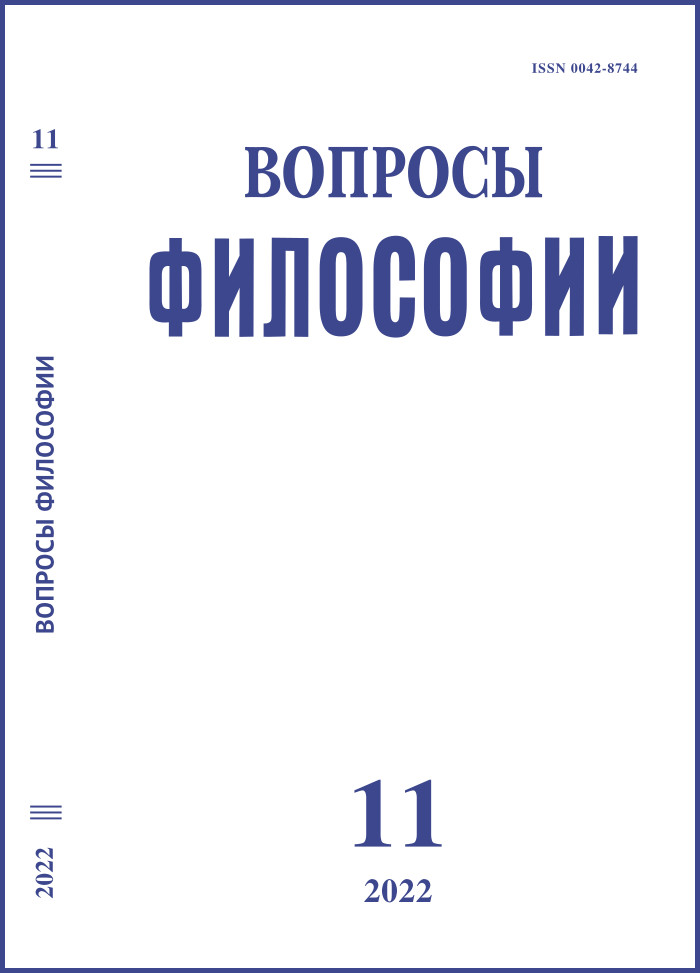Methodological Reductionism and the Idea of Progress in the Social Sciences and Humanities: An Internalist Perspective
DOI:
https://doi.org/10.21146/0042-8744-2022-11-76-86Keywords:
social sciences and humanities, epistemology, social and humanitarian knowledge, naturalism, cumulativism, internalism, progress.Abstract
In this paper, we consider the internalistic foundations of progress in the social sciences and humanities. Our working hypothesis is that a linear (cumulative) understanding of progress in the humanities and social sciences expresses itself in a tendency towards methodological reductionism (naturalization within epistemology of social sciences and humanities), which, in turn, is opposed to a nonlinear (pluralistic) approach that proclaims a theoretical variety and pluralism of methodological attitudes. This trend is determined by the desire to strengthen the epistemic foundations of social sciences and humanities through the reception of concepts and approaches of other, “more successful” natural sciences or mathematical approaches from related fields in social sciences. Depending on how exactly the reception takes place and with which disciplines ties are built up, we distinguish three strategies for the development of naturalization. The first is a substitution strategy in which the social sciences and humanities not only borrow directly from natural sciences approaches, but also abandon their own specific research subject. The second strategy is an adaptation strategy. In this case, we are not talking about methodological substitution in its pure form, but about the possibility of partial reception of certain natural science theories and methods (or the reception of mathematical methods from related areas of social knowledge – for example, from the area of economic analysis) in accordance with the goals and objectives of social and humanitarian research (that is, the social sciences and humanities retain their specific subject of research, and the methodological base expands through the use of scientific and mathematical methods and data). And finally, the third is the validation strategy, in which the specific subject of social and humanitarian research is preserved. However, the borrowing of scientific methods occurs not at the stage of the research, but at the stage of assessing its results. In the paper we use specific examples from the social sciences and humanities to consider three strategies of reductionism (as naturalization) from the point of view of their consequences for the development of social sciences and humanities in an internalist perspective.
Downloads
Published
Versions
- 2025-02-07 (2)
- 2022-11-30 (1)

